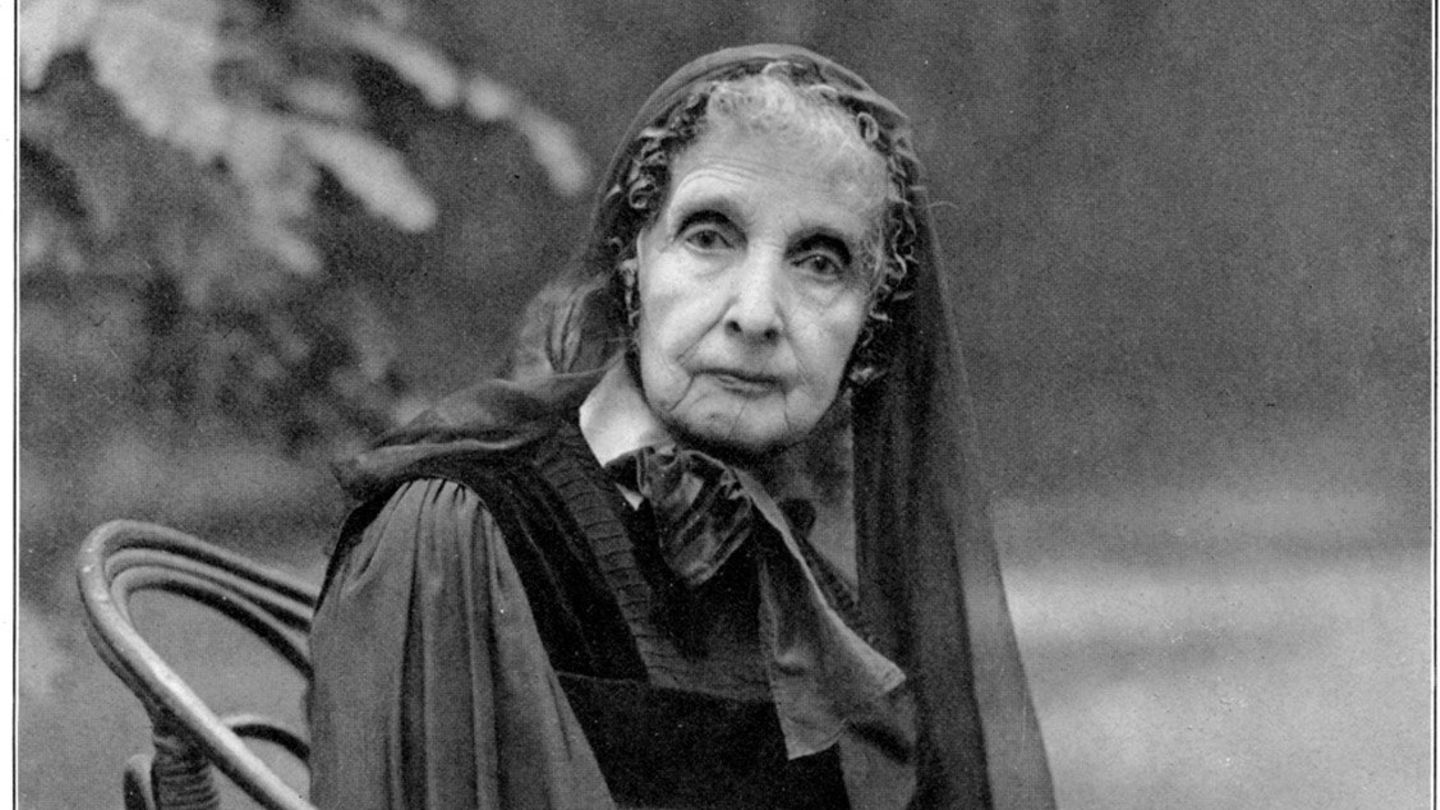Hedwig Dohm was an early pioneer of feminism. She was one of the first to demand the right to vote for women as early as 1873. She also campaigned for comprehensive educational reform and women’s studies. Google honors the writer with a doodle.
Hedwig Dohm is considered a pioneer of the women’s movement. The eldest daughter of the tobacco manufacturer Gustav Adolph Schlesinger and Wilhelmine Henriette Jülich was born on September 20, 1831 in Berlin as Marianne Adelaide Hedwig Dohm. She is the fourth of 18 children. While her brothers enjoyed a good education at high school, she had to leave the girls’ school at the age of 15 to help around the house. She rocked her little siblings’ cradle for hours in a dark room, knitting and darning stockings day after day, as she later remembers. Although three years later she was allowed to attend a teacher’s seminar for a year (“It was terrible, a complete blow”), she only gained access to intellectual circles when, at the age of 22, she met Ernst Dohm, twelve years her senior, in March 1853 married, then editor-in-chief of the satirical magazine Kladderadatsch.
The couple had five children between 1854 and 1860, with the first – their only son – dying of scarlet fever at the age of eleven. Hedwig Dohm ensures that all children receive a good education. Her daughter Hedwig later made her the grandmother of Katia Mann, the wife of the writer Thomas Mann. The Dohms’ home became a popular salon where well-known personalities met, including Alexander von Humboldt, Franz Liszt and Theodor Fontane. The curious and inquisitive woman makes up for her lack of education. It became clear that she was a remarkable autodidact when she published her first work in 1867, when she was in her mid-30s – a 600-page treatise on the history of Spanish literature.
In 1873, Hedwig Dohm demanded the right to vote for women
But she and her husband are increasingly plagued by money worries. Ernst Dohm doesn’t earn enough to support his growing family. The bailiff is always at the door. In 1869 the situation became so serious that Ernst Dohm was threatened with imprisonment and fled to Weimar. While the children are given to relatives, Hedwig Dohm moves alone to Rome for a year with her sister, the painter Anna Schleh. Back in Berlin she publishes political essays. Her clever, sharp and funny lyrics make her a widely respected voice. In “What Pastors Think of Women”? (1872), “Jesuitism in the Household” (1873) and “The Scientific Emancipation of Women” (1873), she quickly and ironically attacks the “men’s rights activists”, especially pastors and doctors, who deny women any right to independence. She also writes several comedies that are successfully performed in Berlin. Novels and novellas are also added later.
In 1873 she was one of the first to demand the right to vote for women. She writes: “Women have to pay taxes like men; they are responsible for laws that they had no part in deliberating; they are therefore subject to laws that others made.” She concludes: “In all languages of the world this is called tyranny, simple, absolute tyranny. No matter how mildly it is handled, it remains tyranny. The woman, like the slave, owns everything that is granted to her out of kindness.” She also denounces the hypocrisy of society, which prevents “bourgeois” women from working outside the home, but allows the workers to toil in the factories until they drop, regardless of their “delicate feminine nature.” When she was already in her seventies, she advised her peers: “More pride, women! The proud can displease, but they are not despised. The foot of the supposed master only steps on the neck that bends!”
Hedwig Dohm died at the age of 87 on July 1, 1919 in her apartment on Tiergartenstrasse in Berlin. Just a few months earlier – on November 12, 1918 – women were given the right to vote. Google is honoring the writer with a doodle on the occasion of her birthday on Wednesday.
Watch the video: The influencer Louisa Dellert regularly discusses politics with her followers. When it comes to the issue of quotas, she comes across two divided camps. She knows both sides herself. A protocol.
Sources: , , “World” archive,
Source: Stern
I am an author and journalist who has worked in the entertainment industry for over a decade. I currently work as a news editor at a major news website, and my focus is on covering the latest trends in entertainment. I also write occasional pieces for other outlets, and have authored two books about the entertainment industry.




